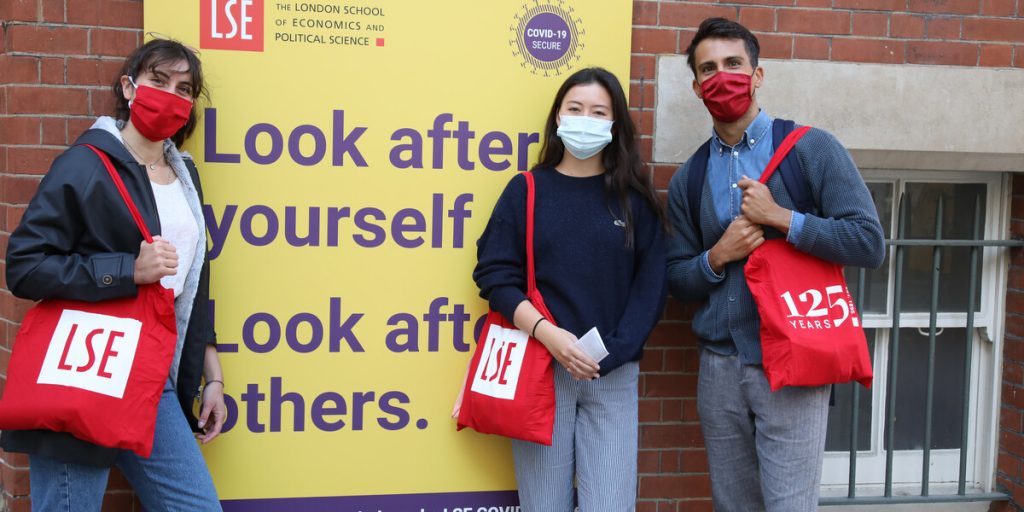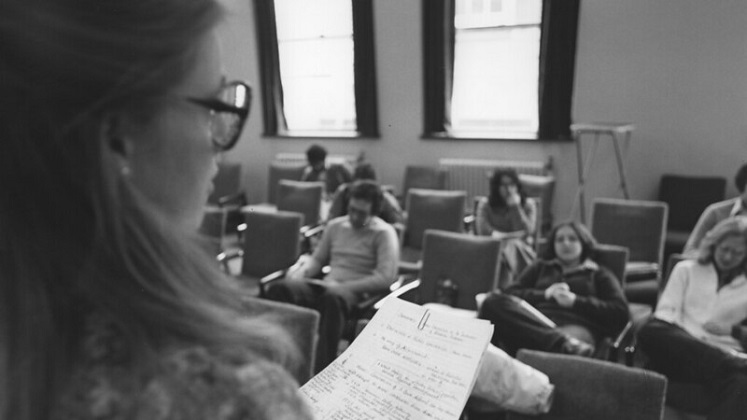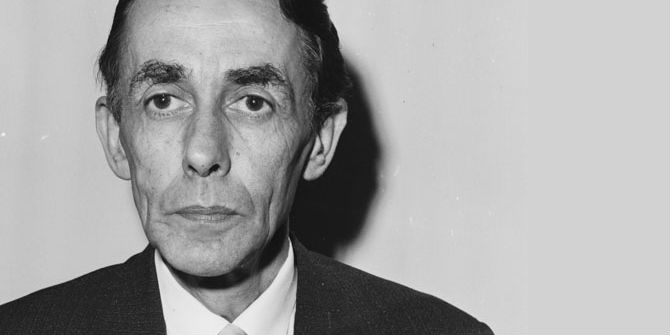LSE Library staff are working on the LSE COVID-19 Archive Collection. Kevin Wilson and Emma Pizarro (LSE) explain how they are recording the School’s experience of the pandemic.
Since May 2021, LSE Library has led a school-wide project to document the school’s experiences of the pandemic. This involves capturing how the entire LSE community lived, worked and socialised over the last two years and more, and building on the approaches that other institutions and organisations have followed in developing archives of the pandemic, such as the Library of Congress and the University of Edinburgh.
COVID-19 is the biggest challenge LSE has faced since the Second World War, when the school was evacuated to Cambridge. Although the school survived the risks associated with war and withstood other political and economic challenges, nothing could prepare us for a global public health emergency. Of course, LSE was not alone. Universities across the world had to respond quickly in March 2020.
COVID-19 is the biggest challenge LSE has faced since the Second World War, when the school was evacuated to Cambridge
Our aim with this project is to develop a born-digital archive of the pandemic for future research, both at the School and more broadly. Researchers will be able to discover how LSE coped during a period of great turbulence, how teaching, learning, research and the student experience continued, and how the school remained resilient, flexible and adapted to various pressures.
We have taken an inclusive and representative approach to this project. We wanted to capture the experiences from across the LSE community — not just students and academic staff, but also Professional Services staff who worked on the ‘frontline’ during the early stages of the pandemic, such as security and cleaning staff. We have also tried to be sensitive and mindful of the feelings and memories that the pandemic evokes. Zoom quizzes and baking were some of the more light-hearted ways in which we have dealt with the pandemic, but for many, it has been a difficult and painful experience.
The COVID-19 archive project has two parts:
- A general call-out for multimedia objects, such as images, videos and sound files, that represent the contributor’s experiences of the pandemic;
- A series of oral histories, comprising interviews with a diverse set of individuals within the LSE community to learn more about their pandemic experiences.

Multimedia objects
This part of the project was promoted to the whole LSE community from the summer of 2021 onwards. So far, we’ve received over 30 submissions from the community, all reflecting very different experiences since the start of the pandemic. Contributors sent their submissions via an online form and included information such as a title for the object, when it was made/taken and the story behind it. For example, we received submissions from students present on a relatively quiet campus or exploring parts of London for the first time during the lockdown periods, as well as academic staff juggling the demands of work and caring responsibilities at home (and often home at the time was outside of the UK). Many more students were abroad and attending classes and social activities online.
Our archive of multimedia objects will be made publicly available online shortly. More information will be on the project website and social media. We are still happy to receive more contributions from the LSE community.
Oral history
We will shortly begin interviews with staff and students about their experiences of working and studying at the LSE during the pandemic. Although we hold various oral history collections in our archives, this is the first time the Library has conducted a project of its own and it has required a long period of planning, preparation and training.
As the interviews will involve the collection of personal data and may potentially discuss sensitive topics, we have drafted documentation and data management plans for the approval of the LSE Research Ethics Committee. We’ve had to consider how the recordings in the collection might be used in future, and to think carefully about how best to communicate the project to participants, to enable them to give informed consent and make decisions about access permissions and assigning copyright.
We received submissions from students present on a relatively quiet campus or exploring parts of London for the first time during the lockdown periods, as well as academic staff juggling the demands of work and caring responsibilities at home (and often home at the time was outside of the UK)
We were keen to create a developmental opportunity within the project for LSE students whose own research might involve oral histories and we are incredibly grateful to Tanya Harmer and the PhD students from the International History department who are collaborating with us on the project. They have had oral history training from the Oral History Society and the British Library and attended our workshops on the practicalities of setting up and conducting interviews. Their expertise and enthusiasm have been incredibly helpful.
Our plan is to interview 20-25 people, but the scope of the project may be extended if a funding opportunity can be found. An important aim of the project from the outset has been for us to record the experiences of those members of our community who are currently underrepresented in the LSE institutional archive. To create a collection that truly reflects the diversity of experience from across the school will be limited by only speaking to a relatively small number of interviewees, so we are still keen to hear from more members of staff, in particular colleagues who continued to work on campus during the national lockdowns.
Once the interviews have been conducted, the final phase of the project will be to store and preserve the audio recordings and accompanying material. The interviews will all be closed for general consultation for an initial period of five years, after which they will be made publicly available unless the interviewee has specified any further access restrictions.
This blog was originally posted on the LSE COVID-19 blog, which closed to new contributions at the end of May 2022.
More information about the LSE COVID-19 archive collection can be found on the project web page [page archived]. This project has now closed. Send any enquires to library.enquiries@lse.ac.uk.
This post represents the views of the authors and not those of the COVID-19 blog, nor LSE.




